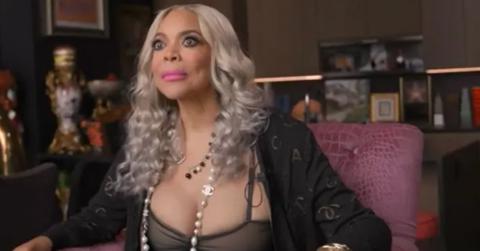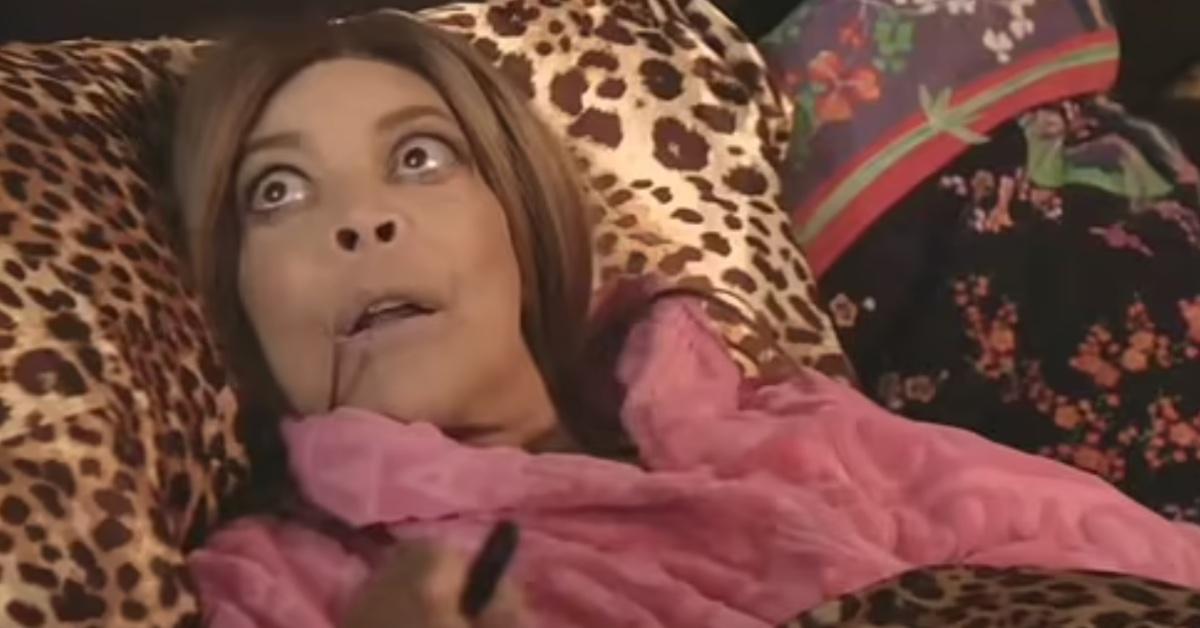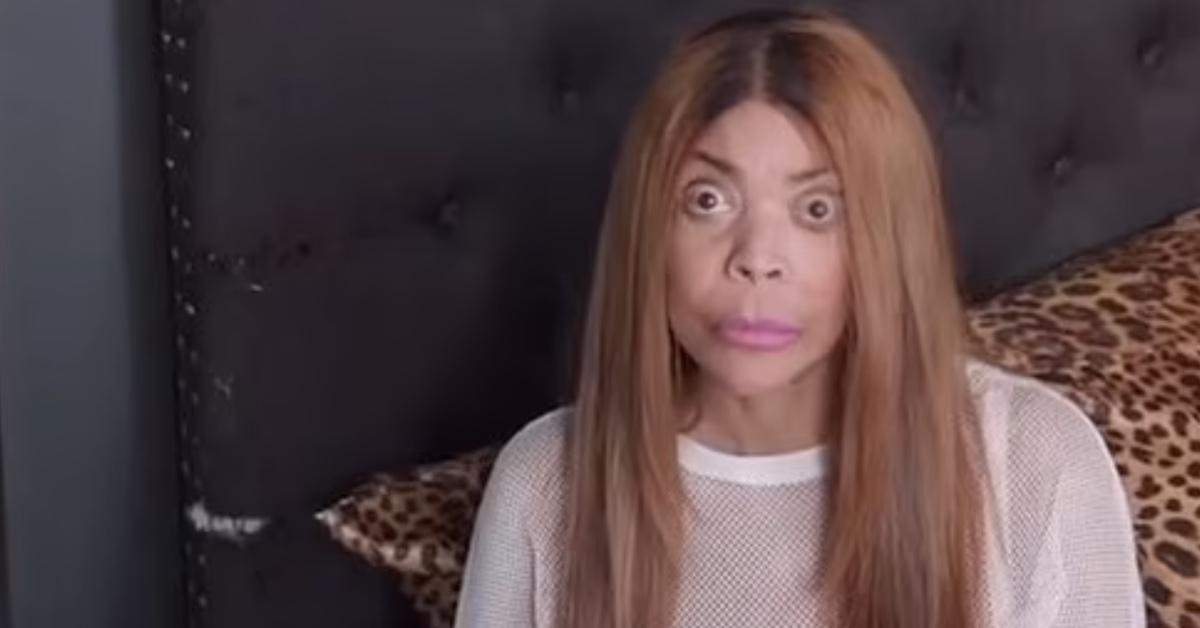Wendy Williams Doc Producers Say Cameras Wouldn't Have Rolled if They Knew She Had Dementia

Wendy Williams' Lifetime documentary is getting mixed reviews.
Feb. 26 2024, Published 7:08 p.m. ET
The producers behind the heartbreaking Wendy Williams Lifetime documentary are speaking out, defending the choice to stand by and film the deteriorating star while admitting that while they were concerned about her wellbeing, they didn't know the severity of her condition, RadarOnline.com can reveal.
Where is Wendy Williams? is a four-part documentary that aired over the weekend and took over a year to film. The crew hoped to capture the former beloved talk show host's sober career comeback but found that Williams' situation was more dire than anyone expected.
Days before the documentary debuted, Williams' team issued a press release announcing she was diagnosed with primary progressive aphasia and frontotemporal dementia, which impacts communication, cognitive function, and language. Her court-ordered guardian also filed a lawsuit against Lifetime's parent company in a Hail Mary attempt to presumably prevent the documentary from airing.

The famed gossip guru has been out of the limelight since the cancellation of her show in 2022, following an earlier Graves disease diagnosis and contracting COVID-19.
Where is Wendy Williams?' producer Mark Ford, executive producer Erica Hanson, and Lifetime’s Brie Miranda Bryant agreed to a Zoom interview on Monday to face questions and concerns surrounding the disturbing footage they filmed and aired.
Many critics questioned how the documentary's team could sit back and watch Williams deteriorate.
“At a certain point, we were more worried about what would happen if we stopped filming than if we continued," Ford told The Hollywood Reporter, with one of the three later claiming, "If we’d known she had dementia, no one would’ve rolled a camera.” However, at one point in the interview, Ford shared that his team wasn't surprised to learn of Williams' medical diagnosis.
"I don’t think it surprised us. Of course, we’re not medical professionals. But anyone watching the film can see that there are signs that were there and then progressed rapidly," he said.
When Ford was asked about the thought process behind the project, he responded that they were "hopeful" the story "would be redeeming."
"But as we filmed, it became evident that this wasn’t really going to be a career comeback story, that this was going to be a deeper story, and that there was something ultimately disturbing going on in Wendy’s life," he shared.
He also said he believed she was ready for camera crews to be back on her "100 percent" but that derailed quickly.
"The beginning of the film was really the development shoot, where we went out and just wanted to sit with Wendy and see how she was doing," he explained. "Basically the story that was given to us after that day is that it was a bad day for Wendy and that alcohol had been involved, and now she was going away [to a treatment facility] and she was going to get that under control. But this should in no way inhibit us from moving forward. And when we did come back, she was better. She was sober and on a better trajectory. And there were conversations and plans for the podcast, and there were people being put in place to produce that podcast, and that was a storyline that we were following. But it was derailed because of what we now know was the state of Wendy’s dementia."

Wendy's alleged alcoholism was a hot topic during the four-part project; however, she claimed she didn't have an issue.
When THR pushed back and insinuated that her decline was evident and happening in real-time in front of them, Ford claimed, "It was tough every single day, and there were conversations that we had, all of us, throughout the documentary," adding, "We just happened to be there every day seeing the reality of this situation, and we just put the camera on it and captured it. There was no intention. And Brie was very supportive throughout, because we needed to just let this documentary unfold and see where it went. And you literally see that in the film."
He continued to defend recording her erratic behavior, saying they were "very transparent about our producers’ confusion. We’re asking all of these questions that everyone has all the way through. We don’t know this manager. It’s a new manager. We don’t know this publicist. It’s a new publicist. The guardian won’t speak to us. And so we’re constantly just trying to push forward and get the information as filmmakers. Like, what is actually going on here?"
Ford said that Williams loved the camera so much that they "were more worried about what would happen to Wendy if we stopped filming then if we continued."
He said worse footage exists and will never see the light of day. Ford said they had Williams' best interest at heart; however, the team hasn't spoken to her since filming wrapped in April and Wendy never got to preview the documentary before it aired because they don't know where she is.
"We simply have had no way to get it to her to see it. No way to screen it with her, because she’s locked down in a facility and we haven’t been able to speak to her since we wrapped filming. The last day that you see us filming with her is the last time we spoke to Wendy," he said.

Ford later explained, "What you see in the documentary is the last time we ever spoke with Wendy. The team did go back and check on her a couple times after filming stopped, but we couldn’t get into the apartment. And then we’ve been checking in with her through her manager Will, who has spoken to her many times in the ensuing months. And he echoes what you see in the documentary that she is sounding and doing better, and she is getting the right care. So that’s one thing that we’re very relieved about, that we left her in a better place than we found her."
Despite the mixed reviews, Ford said, "The doc is very observational in its nature and just captured the truth of what was happening to Wendy and what the people around her were doing or not doing."
RadarOnline.com has reached out to Will Shelby for comment.
In response to the guardian's lawsuit, Ford stated, "Ultimately, it’s a First Amendment issue. Nobody should have the power to quash Wendy’s voice, and her family’s voice. And thankfully the courts understood that that was the most important thing, and the free press won out here."
Powered by RedCircle



